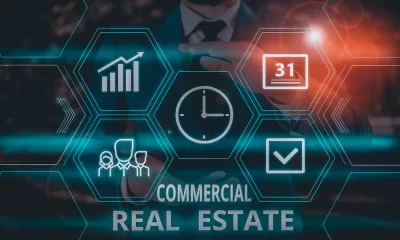Legal
How to Secure the Best Terms for Your Commercial Lease

Commercial property leasing is a different world from its residential counterpart. Investors that have always invested in residential and switched to commercial find the process and legalities challenging.
Commercial real estate includes many more property types, e.g. retail shops, offices, warehouses and so on and often, different laws apply, which add to the challenge of negotiating leases.
Simply put, you will need to hone your negotiation skills as everything about commercial property investment from purchasing to securing leases is up for negotiation.
Commercial property buyers need to engage legal representation early on in the sales process to ensure they get the terms they need for the investment to be worthwhile.
Here are four tips on how to secure the best terms for your next commercial lease.
1. Use Electronic Platforms
Commercial lease terms can get complicated in a hurry, and you should use an electronic document repository at the very least. However, problems can potentially begin right from the start. Searching for commercial properties can turn into a headache if you don’t do it right.
Traditionally, commercial property lessees contact specialized realtors who handle the transaction. Not every commercial property is listed on the market for rent, and even the ones listed have many terms attached to them. For instance, the lease terms might not suit the lessee, or the landlord might be looking for a specific type of tenant to preserve the tenant mix.
An electronic platform can simplify the process of understanding all these terms. In effect, the platform turns these terms into filters that lessees can use to narrow down their choices.
Commercial real estate platform Floorly allows you to browse commercial spaces that are available for rent, without the need to hire a realtor. Also, you can get see existing bids on a property and buyers can adjust offers accordingly. Furthermore, all documents can be signed electronically.
Electronic platforms aren’t yet widespread in the commercial real estate world like they are in the world of residential properties. However, using one goes a long way towards removing many challenges that come with the leasing process.
2. Review Essential Terms

Commercial leases are complex beasts, and their terms can throw off even the most seasoned investor or lessee. Lessees must review all terms and understand their meaning before signing off. For instance, what kind of a lease is it? A triple-net lease carries very different connotations from a standard lease.
It has financial implications for the lessee’s business. Revenue sharing models must also be clearly understood before signing. A commonly encountered source of confusion is revenue versus profit sharing. Some landlords confuse the two terms, and disputes arise.
If both parties are on board with sharing profits, calculating the bottom line is also a source of confusion. Which costs should be considered? Does profit pertain to the store itself, and do ancillary costs have to be included in the calculation? All of these factors are important to both parties and must be understood before signing off.
Breakaway clauses and maintenance responsibilities are a perennial source of conflict in real estate, whether residential or commercial. All parties must negotiate these terms clearly and ensure the lease specifies all relevant conditions.
3. Learn from Neighbors
Before signing on the dotted line, it helps to speak to existing tenants and their neighbors. What is the commercial footfall like, and is it sustainable? How do seasonal patterns play out? What are some red flags that you should watch out for as it relates to the landlord?
Some landlords charge high rents and neglect forming a partnership with their lessees. This is a huge red flag, and high turnover rates are the surest indication of a greedy landlord. If leasing in a larger commercial space like a mall or a shopping center, inquire about the special terms such as common area maintenance charges, revenue sharing, POS connections to the mall’s servers, and other issues.
Talking to neighbors also helps flesh out finer details in the lease deed. For instance, malls have strict opening hours requirements for their lessees. Are these sustainable hours? Does it hurt the lessee’s business to remain open at all times? Are there minimum footfall clauses that the lessee can use to gain leverage on the operator? Talking to existing lessees is the best way to figure this out.
4. Remember Your Needs
Lessees often get lost in the excitement of signing a new lease and forget to prioritize their needs. An excellent example of this is ignoring a radius clause in the lease agreement. Radius clauses are essential to ensuring a good tenant mix. A good landlord will always include them by default and will mention them unprompted.
A landlord or property operator who doesn’t prioritize this clause will cause harm to all of their tenants, and high turnover rates will indicate a problem. When signing a lease for a new commercial property, you won’t have much data to go on. In these cases, examining the operator’s reputation provides clues about how your needs will be met.
Talking to the owner will also reveal their views on your needs. How will they handle liability claims, and how open are they to prioritizing your needs? Examine everything and put yourself first.
Flexible, but Complex
Commercial leases are incredibly flexible, but they can get complicated if you don’t pay attention. The four points highlighted above will ensure you always secure the correct terms and protect your interests.






